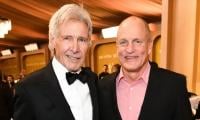A vision wasted
There has to be a grand vision and then contributing visions to the grand vision. Quaid’s grand vision was to create a Pakistan for the Muslims of India. That became his grand objective to which he would in time dedicate all his resources. It came about slowly, guiding itself to actualisation even if first when the Quaid began his political struggle for the rights of the Muslims of India that surely wasn’t on his mind as a goal. Till, of course, the obtaining political and social factors pushed him into one.
So much for history. After we got the country did we begin to grapple with what to do with it. The Quaid left us a plethora of guidelines – ranging from establishing its Islamic essence to an egalitarian, progressive and democratic nation. Perhaps to his mind then, there was no contradiction to hope for an Islamic identity as a country and yet be democratic and progressive. Actually, there isn’t but in our hands we have over time leveraged each of those into protected turfs which only seek exclusivism.
When Mian Nawaz Sharif took over power the third time, in 2013, such issues of contradictory identity were hardly the most pressing in his mind. Now that one looks back at his four years – and this is no obituary of his government, I must emphasise – one can perhaps discern two aspects of his vision for this term on how he wanted to move the nation forward. One was a peaceful neighbourhood (read: improved relations with India, the absence of which he must have thought underwrote all that was vile) and the other, economic development which has always been his trademark plank. What he actually understands about economy beyond roads is another point altogether.
These two really make for a very good vision for a five-year term, and if achieved could at least set the nation in this direction even if some distance was still to be covered at the end of his five years. The implicit salubrity, enough to instil the change which could lead to a relatively better future – unless, of course, distractions arrive.
Roll back a bit. It is probable that Nawaz Sharif and his PML-N would not have actually won the 2013 elections by the margin that they did. They would have won, without a question, for such was the wariness with the Zardari regime, but by this margin may have carried some not insignificant official sanction. Official here can mean many things. He probably was winning, and when those managing the elections may have reached him with the good news he sought an even larger winning margin for the cooperation that he would offer to the power centres in return.
The establishment in our country is widespread and includes many a player with permanence not available to politicians, establishing centres of power and influence to which politicians do repeatedly supplicate. This reverses the Zardari theory of permanence, I am aware, but what sustains is far different from what AAZ preaches.
So if Imran Khan felt cheated after the elections he was probably right, though he may have gained a few more seats but never enough to change the equation. Nawaz was only helped to bigger and better – as has always been his wont.
I wrote in this space once how the then army chief called on the PM-Elect in Lahore and proposed some modifications to his perceived India policy. The crux was ‘go slow’; see how they proceed and safeguard your interests. On another, the ongoing war against terrorism – especially the groups that were ensconced in North Waziristan – he was advised to ‘avoid appeasement; try if you must to negotiate a settlement, but leave space for action if warranted’. Negotiation had been the PML-N’s leading choice when contemplating dealing with the militants. The economy, of course, was PM-Elect’s presumed forte.
In turn, the PM-Elect would do all a huge favour by not hounding Musharraf and rekindle old, and now irrelevant, animosities. By then the relationship between the two had attained a personalised element to it and wasting political capital on a spent force would surely not be advisable. Musharraf, who had been successfully seen off from the presidency by the same army in 2008, was largely irrelevant. The charter of Nawaz’s next five years was thus duly concurred to.
Impulse though soon took over. Nawaz wouldn’t be Nawaz if that were not the case. As soon as he had seen Kayani off, he began by instituting case after case on Musharraf, expending his sweetly earned political capital on a lost cause while placing his newly chosen army chief in an even bigger quandary on how to respond. The gauntlet thrown to Raheel Sharif was abrupt and violated the understanding passed on from Kayani to Raheel.
That it played out poorly between the two arraying the institutions against each other was an obvious consequence. Later, a truce was worked out and Musharraf was dispatched abroad where he still resides. Political capital had been wasted, and waters muddied forever. Any surprise then that the two barely went along in perhaps the most tenuous era of civil-military relationship in recent times?
Next came the Modi inauguration, to which Nawaz went with not an insignificant unease back home. The treatment that Modi dealt to him has never been expressly stated but he was lectured in no uncertain terms clearly indicative of business not as usual. In due course, the ‘Doval Doctrine’ became physically manifest in how Pak-India relations can only be seen now through the prism of an unstinted proxy war. Pakistan is living through it. Vision I has since stood binned.
At home, too, ‘negotiations’ with terror groups never paved the way towards normalcy. The June 2014 TTP attack at the Karachi Airport and the December, 2014 massacre at APS Peshawar began a series of kinetic operations that got bunched into a persisting war against terror. The military led the way – politics ceding space to it and giving the military a prevalence it may have hoped to avoid earlier. Somewhere along the way, Afghanistan too got eclipsed under Nawaz’s insufficient attention and the absence of a regular foreign minister. India has deftly used the available space in Afghanistan by embroiling Pakistan in a proxy war on its western border – something Pakistan had hoped to desperately avoid. This continues to be a festering sore, while relations with Afghanistan only plummet further.
It is in this backdrop that Nawaz’s current travails seem increasingly ominous. Embattled and weakened by a persistent political free-fight, he struggles with allegations of massive corruption. And as more and more is asked of him and his children in terms of their accumulated wealth, he cuts a sorry and a forlorn figure. The other facet of his rather restrained vision, the economy, has also been only partially attended as issues of personal credibility dwarf his grander persona. With missteps galore, Nawaz Sharif is struggling to save both his legacy and empire. The likes of Nehal Hashmi and his brigade of sorry apologists notwithstanding, Nawaz’s throne has never been on shakier grounds.
Email: shhzdchdhry@yahoo.com
-
 Real Reason Why 'Only Murders In The Building' Cast Didn't Attend 2026 Actor Awards
Real Reason Why 'Only Murders In The Building' Cast Didn't Attend 2026 Actor Awards -
 Prince William Makes Big Decision After Princess Eugenie, Beatrice Ban
Prince William Makes Big Decision After Princess Eugenie, Beatrice Ban -
 GLP-1 Drugs Linked To Osteoporosis And Gout: New Study Reveals Higher Risks
GLP-1 Drugs Linked To Osteoporosis And Gout: New Study Reveals Higher Risks -
 Seth Rogen Unveils Catherine O’Hara's Distinguished Quality In Emotional Tribute
Seth Rogen Unveils Catherine O’Hara's Distinguished Quality In Emotional Tribute -
 MWC 2026: New Smartphones, AI Gadgets And Tech Innovations Revealed
MWC 2026: New Smartphones, AI Gadgets And Tech Innovations Revealed -
 King Offers Harry, Meghan Markle A 30 Bedroom Lodge Despite Its Decades Of Baggage: ‘it’s An Olive Branch’
King Offers Harry, Meghan Markle A 30 Bedroom Lodge Despite Its Decades Of Baggage: ‘it’s An Olive Branch’ -
 Selma Blair Talks About How Her Debilitating Disease Is 'misunderstood'
Selma Blair Talks About How Her Debilitating Disease Is 'misunderstood' -
 China’s 5-year Tech Strategy: What To Expect At Annual Parliament Meeting Amid Rivalry With West
China’s 5-year Tech Strategy: What To Expect At Annual Parliament Meeting Amid Rivalry With West -
 Andrew’s Total Meltdown On The Day Of Eviction: Insider Breaks It Down Word For Word
Andrew’s Total Meltdown On The Day Of Eviction: Insider Breaks It Down Word For Word -
 Michael J. Fox Stuns Actor Awards Audience With Rare Confession Amid Parkinson's Disease
Michael J. Fox Stuns Actor Awards Audience With Rare Confession Amid Parkinson's Disease -
 Beatrice’s In-laws Stand Against Her Marriage: ‘Furious Their Son Is Wrapped Up In Wreckage’
Beatrice’s In-laws Stand Against Her Marriage: ‘Furious Their Son Is Wrapped Up In Wreckage’ -
 Jessie Buckley Utters 'wild' Remarks For 'Hamnet' Co-star Emily Watson At Actor Awards
Jessie Buckley Utters 'wild' Remarks For 'Hamnet' Co-star Emily Watson At Actor Awards -
 Who Could Replace Ayatollah Ali Khamenei? Iran’s Top Successor Candidates Explained
Who Could Replace Ayatollah Ali Khamenei? Iran’s Top Successor Candidates Explained -
 Oliver 'Power' Grant Cause Of Death Revealed
Oliver 'Power' Grant Cause Of Death Revealed -
 Michael B. Jordan Makes Bombshell Confession At Actor Awards After BAFTA Controversy: 'Unbelievable'
Michael B. Jordan Makes Bombshell Confession At Actor Awards After BAFTA Controversy: 'Unbelievable' -
 Prince William Willing To Walk Road He ‘loathes’ For ‘horror Show’ Escape: ‘He’s Running Out Of Allies Fast’
Prince William Willing To Walk Road He ‘loathes’ For ‘horror Show’ Escape: ‘He’s Running Out Of Allies Fast’



